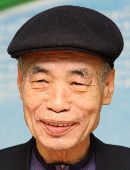장재선의 문화노트 :: 문화일보 카페
김지하 사상기행 푸른 자전거(산문&콩트) | 2005-01-17 21:49:06
제이제이(jeijei2) http://cafe.munhwa.com/literarture/649
지난 64년 한일협정 비밀문서가 공개돼 국민들의 분노를 사고 있습니다. 당시 박정희정부는 국민의 개인보상청구권을 포기하는 대신 ``경협차관``을 얻어왔습니다. 그 협정이 김종필과 당시 일본 외상 오히라의 비밀메모에 의한 것임은 이미 알려져 있는 사실과 같습니다. 김-오히라메모는 결국 박정권이 겨레를 팔아 몇 푼의 정권 유지자금을 빌려오는 데 합의한 것이었습니다.
이 문학노트의 자유게시판에 이풍호 시인께서 올려놓으신 김지하 선생에 관한 영문의 글에서도 나타났듯이 당시 김지하와 같은 열혈 대학생들은 한일협정에 격렬하게 반대했습니다. 후에 김지하시인은 저항가에서 생명 사상가로 심신의 위치를 바꾸지만, 그 생명사상이 어쩌면 64년 데모와 크게 다르지 않다는 것을 지금 이 순간 해 봅니다.
다음은 몇 해 전에 김지하 사상기행을 읽고 쓴 서평으로 어느 지방신문사에서 펴낸 잡지에 실렸던 것입니다.
서평- 김지하 사상기행1, 2/ 이문구등 기록, 황지우 대담
민족사상으로 거듭날 때다
시인 김지하가 ‘사상기행’을 떠난 것은 84년 12월이었으나 그것이 책으로 묶여 나오기까지는 14년여의 시간이 흘러야 했다. 그것은 소설가 이문구가 정리한 당시의 녹취 노트가 없어졌다가 다시 발견된 사정 때문이었는데, 그렇게 오래 묵어서 세상에 나온 만큼 두 권의 책은 숙성의 도가 한껏 높아서 읽는 이로 하여금 그저 취하게 할 뿐, 무어라 떠들 엄두가 나지 않게 만든다. 그러므로 그 취한 느낌을 말하고자 하면서도 이 책이 가르쳐주는 길을 쭈욱 따라가면서 간간이 소회를 풀어놓는 것으로 대신할 따름이다.
‘사상기행’은 당시 사십대 중반의 나이에 ‘생명운동’을 주창하고 있던 김지하가 남녘의 산하를 통해 그 실체를 만져보기 위한 것이었는데, 거기엔 이문구와 송기원, 임진택 , 장선우 등이 동참하고 기행 중에 송기숙, 황석영, 최창조 등이 합류한다. 이 책의 머리말에 소개된 대로 군사정권이라는 절망적인 어둠 속에서 빛을 모색하던 당대 지식인들의 눈물겨운 몸부림의 기록인 것이다.
나는 기억한다. 최루탄 내음이 가시지 않던 캠퍼스에서 선배들이 불만스런 표정으로 나누던 이야기를. “ 김지하가 변했다더라, 이전처럼 투쟁에 나서지 않고 무슨 생명운동인가를 한다더라. ” 또 기억한다. 85년 봄에 학교 근처의 출판사가 주최한 백제문화기행에 함께 갔던 그 그리운 얼굴들을. 그 행로는 부여, 공주와 익산을 거친 것이었으므로 김지하의 사상기행과 상당부분 일치한다. 당시에 그런 기행을 뜻있는 이들이 여기저기서 계획했던 것은 역설적이게도 어느 부분 군사정권의 덕분이었을 것이다.
김지하의 『사상기행』에서 우선 눈에 띄는 것은 역사의 숨결이 배어있는 우리 산하의 모습이 손으로 만져질 듯이 생생한 사진들인데, 그 것들의 한 켠에 그 곳에서 사색하거나 대화를 나누는 일행의 모습을 또 하나의 컷으로 담아놓은 것은 절묘한 편집이라 하겠다. 기행은 서울의 운당여관이라는 곳에서 시작하여 옛 백제의 땅으로 접어드는데, 훗날의 지배자들에 의해서 백제역사가 졸렬한 것으로 각색되는 것에 대한 이문구의 토로는 절절하면서도, 능청스러운가 하면 통렬한 것이기도 하다.
일행은 계룡산에 다다라 그 ``산주로 군림해온 지 오래``라는 승려 송명초를 만나는데, 그의 미륵신앙에 관한 사설은 김지하와 대거리를 할 만 하다. “미륵불이 하강하기 전에 양귀왕(糧鬼王)이 먼저 나와 터를 닦는다”는 석가의 예언이 있는 바, 송명초는 지금 배가 큰 자들이 독과점을 하고 갈수록 부익부 빈익빈 현상을 빚어내고 있는 현실이 그 실증이라고 한다.
이 말을 책에서 읽을 때 필자의 머릿속에 문득 떠오르는 이가 있으니, 그는 『정역(正易)』으로 알려진 김일부 선생의 손자 제자뻘이 되는 원성 박상화 선생이다. 선생은 평생 민족사상을 연구하고 그것을 펴는데 평생을 바쳤는데, 우리같은 병아리 학도들을 만날 때마다 하시는 말씀이 있었다. “ 달걀이 제대로 썪어야 부화하듯이 지구의 부도덕이 극치에 달하면 후천개벽이 가깝다는 소식이 올 것입니다. ”
김지하 일행이 갑오농민전쟁의 흔적을 더듬어가기로 했으니 공주의 우금고개를 밟고 논산 전주를 거쳐 수운 최제우의 ‘칼노래’가 들리는 남원의 교룡산성으로 향하는 것은 너무 당연하다. 일만명의 동학도에게 제복을 입혀 남원에서 운봉으로 진격했던 김개남포의 어마어마한 전투력. 그것이 가능했던 것은 남원이 양반도시가 아니라 상공업행위를 배경으로 한 물산축적이 가능한 아전도시였기 때문에 가능했다는 해석. 김지하의 이러한 새로운 역사해석은 “여기는 동학과 아무런 관계가 없습니다”라는 남원유지들의 말 때문에 역설적으로 설득력을 갖는다. 그것을 김지하는, 여기 사람들이 과거의 역사를 패배로 보고 아예 지워버리려 한 ‘자기배신’으로 본다.
이렇게 씁쓸한 ‘배신의 현장’을 목격했지만, 남원까지 와서 한 자락의 판소리 듣지 않을 수는 없는 노릇, 소리꾼 김은숙을 청해 <흥보가>를 듣고 임진택이 화답한 끝에 김지하가 그 유명한, 아무도 말릴 장사가 없는, 흘러간 유행가 메들리를 <황성옛터>로 끝맽었다.
김지하가 사숙한 19세기 사상가에 최수운, 김일부와 더불어 강증산이 있다는 것은 널리 알려진 사실이거니와 증산의 사상이 오늘날 종교의 형태로 포교되고 있다는 것도 모르는 사람이 드물 지경이다. 그러나 김지하는 증산의 고향, 김제 금산사를 향해 가는 길에 이렇게 말한다. “ 증산을 과학적으로 실천적으로 받아들이려면 대중운동 형태로 받아들여야 해. 종교종단 조직종단 형태로 받아들여가지고는 그분 자신이 얘기했던 것을 거꾸로 이해하는 게 된다구. ”
이 말은 소설 『단(丹)』의 실제 주인공이었던 ‘우학도인’ 권태훈옹이 대종교의 총전교였던 시절에 내게 들려주었던 말씀을 생각나게 한다. “ 대종교는 종교가 아니야. 지금 외피를 그렇게 썼을 뿐이지. ”
김지하 일행은 금산사 경내에서 스스로를 ‘사도구니’라 칭하는 할머니 보살을 만나는데 그의 말은 그냥 지나칠 수가 없을 정도의 ‘도력’을 뿜는다. “ 내 참, 그래서 금산사 미륵님이 밟고 계신 솥에다가 모든 종교들을 다처넣고 푹푹 삶아서 시루에다 찌면 떡이 된다, 민족종교로다가 통일을 해야 한다, 민족의 얼을 찾아야 한다, 제가 그렇게 말했어요. ”
사상기행 2권에 실린 김지하와 황지우의 대담은 40대중반에 이루어진 기행을 50대말의 나이에 ‘우주적 사색’으로 되돌아보고, ‘단군사상’으로 세간에 표현되는 그 것의 실천적 방법을 모색하는 자리로 읽혀진다. 황지우가 한마디 물으면, 김지하의 대답은 누가 표현했듯이 ‘호수에 돌던지면 물결이 일듯이 일파만파를 일으키며 ’ 읽는 이를 끌어들인다.
90년대 이후로 ‘신경증’ 때문에 많이 아팠다는 김지하가 그걸 극복하며 특별히 내놓은 것은 ‘단전호흡’이고 과거보다 더 강조하는 것은 민족재래의 경전 <천부경>과 후천세계 역으로 알려진 김일부의 <정역>이다. ( 김지하는 앞으로 ‘지하’란 이름대신 ‘영일(英一)’이라는 본명을 회복하고 싶다고 말했는데, 천부경의 첫 귀절‘일시무시일(一始無始一)’을 생각하며 필자는 즐거워했다. )
필자가 이 대담에 취해 몽생(夢生)했지만, 다만 한 가지 섭섭한 것은 대담중에 ‘영가무도’란 말을 두차례 하면서도 원성 박상화 선생이 체계화한 ‘영가무도’에 대한 언급이 없었다는 점이다. 단순히 춤추고 노래하는 것을 영가무도라고 할 수도 있겠지만, ‘음아어이우’의 다섯 가지 소리를 통하는 우리 겨레의 전통 수련법을 ‘영가무도’ 라고 한다는 것을 모를 리가 없을 텐데...
이 책에 나온 것과 최근에 가진 매스컴과의 인터뷰를 살펴보면, 김지하는 앞으로 ‘신인간’을 주창하며 그 실천적 운동을 펴갈 것으로 보인다. ‘신인간’이란 홍익인간, 이화세계의 줏대를 지니고 사상의 혼돈을 감당할 만한 사람을 말하는 바, 그 구체적 펼침은 앞으로 기대해 봐야 할 일이다.
이 대목서 우리 지식사회에 한 마디 하자면, 김지하의 ‘단군사상’에 그저 흠흠거리는 태도를 거두어야 한다는 것이다. 거대한 사색의 결과가 겨우 그 ‘신화’에 기대는 것이냐는 태도는 지극히 서구 편향적인 시각일 따름이다.
프랑스에 있는 홍세화가『인물과 사상』6월호에 지적한 것처럼, 우리 지식사회는 파리에서 거들떠 보지도 않는 ‘포스트모더니즘 ’을 단지 거기서 태동했다는 이유만으로 무조건 숭앙하고 말끝마다 포스트 운운 하는 사대주의 경향을 버리지 못하고 있는 것이다.
덧글 0개 | 조회수 2268









 Thirty-three-year-old Yan is a trailblazer in Chinese agriculture and opened her farm, Shared Harvest, in 2012 [Katrina Yu/Al Jazeera]
Thirty-three-year-old Yan is a trailblazer in Chinese agriculture and opened her farm, Shared Harvest, in 2012 [Katrina Yu/Al Jazeera]
